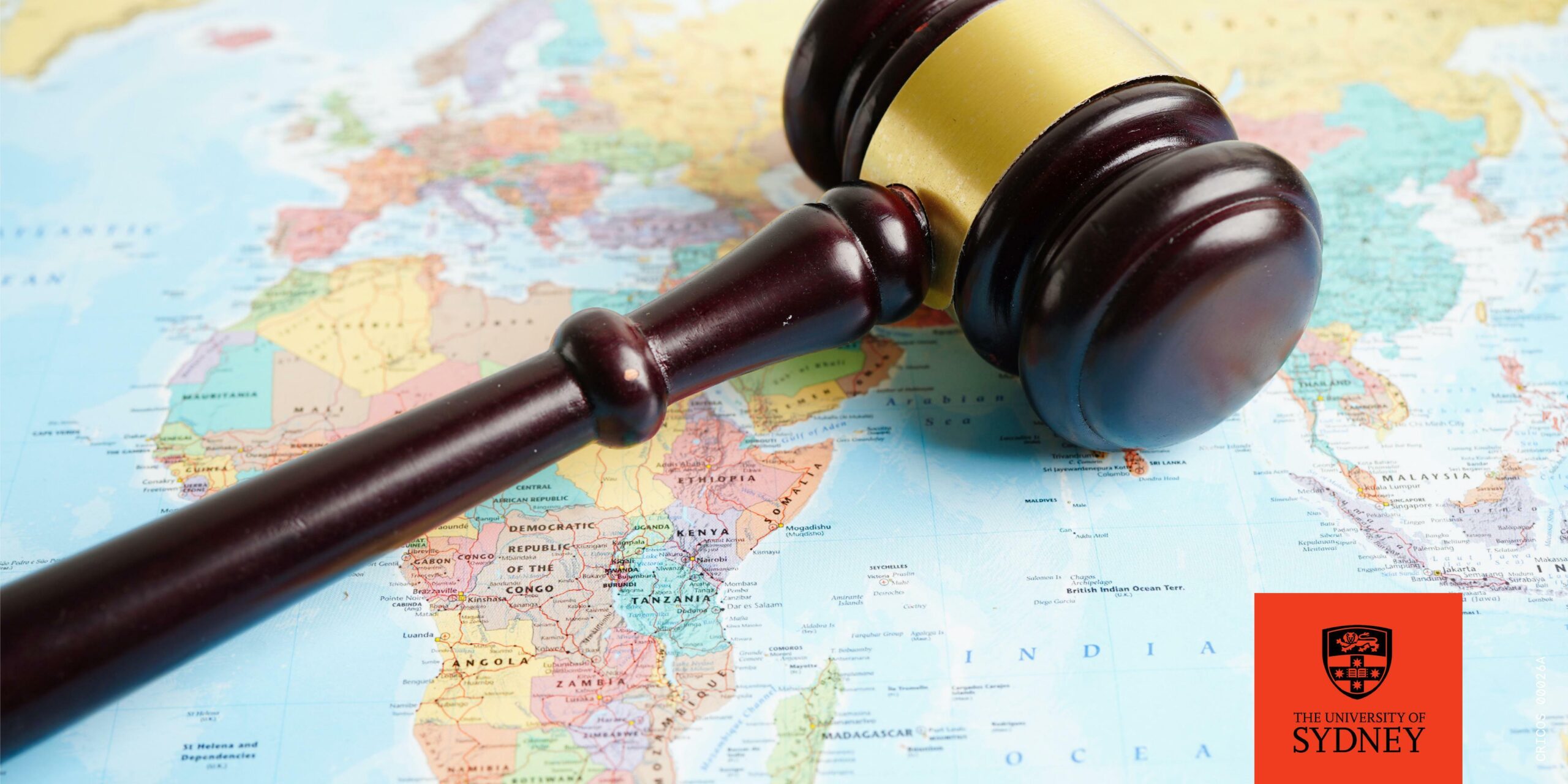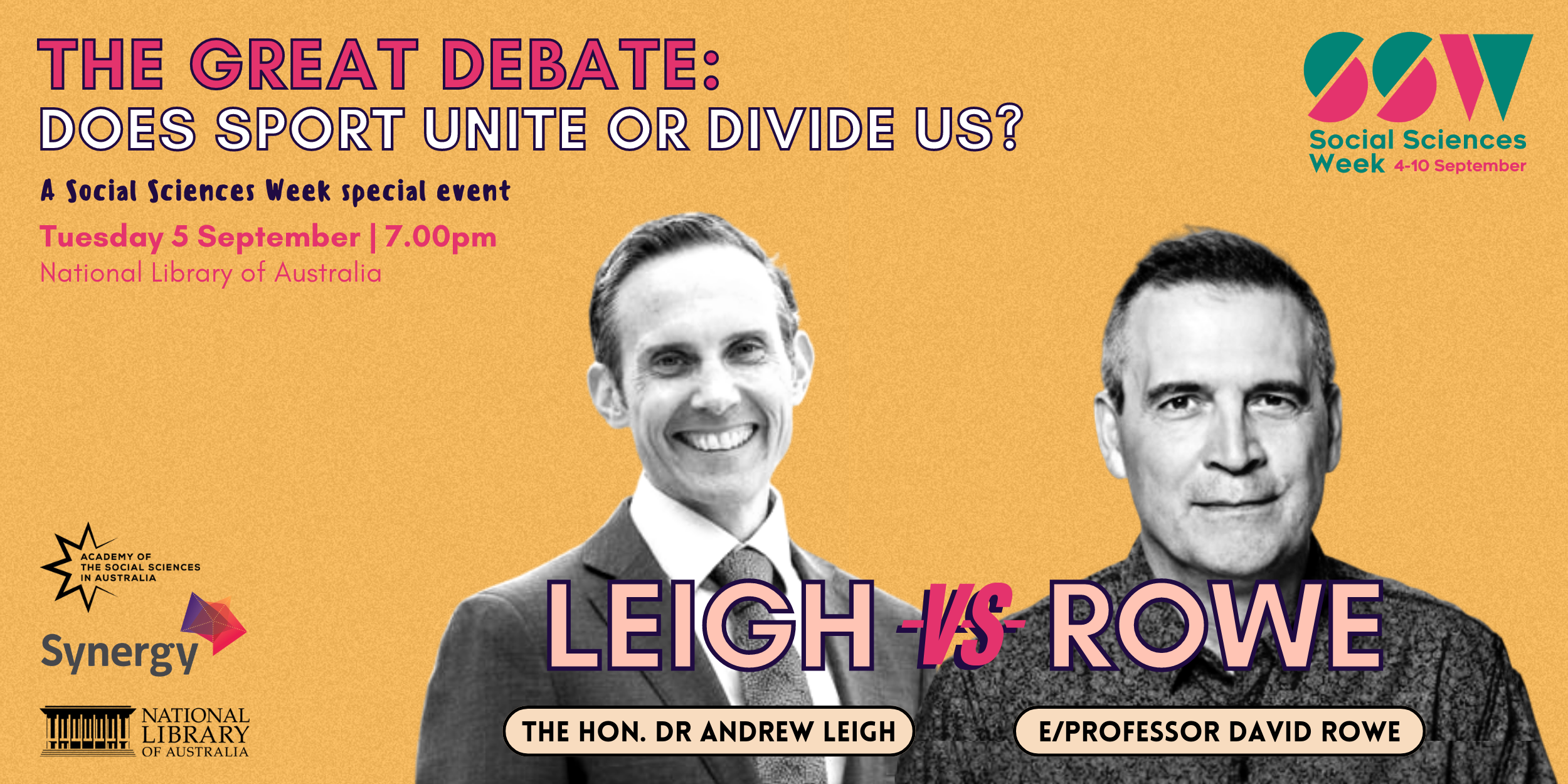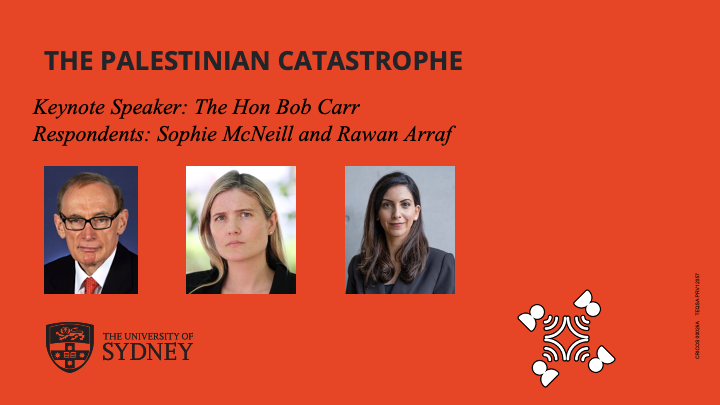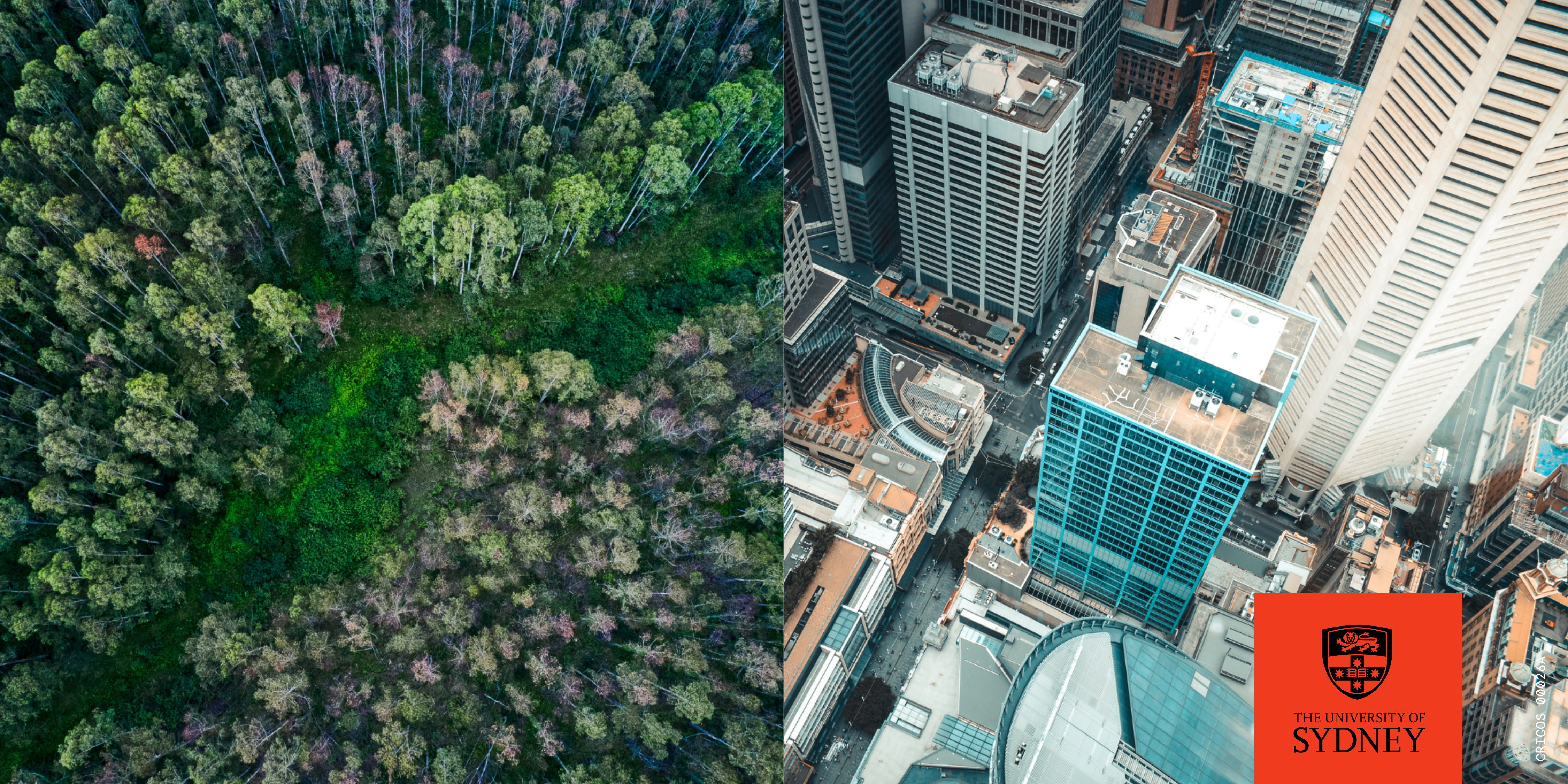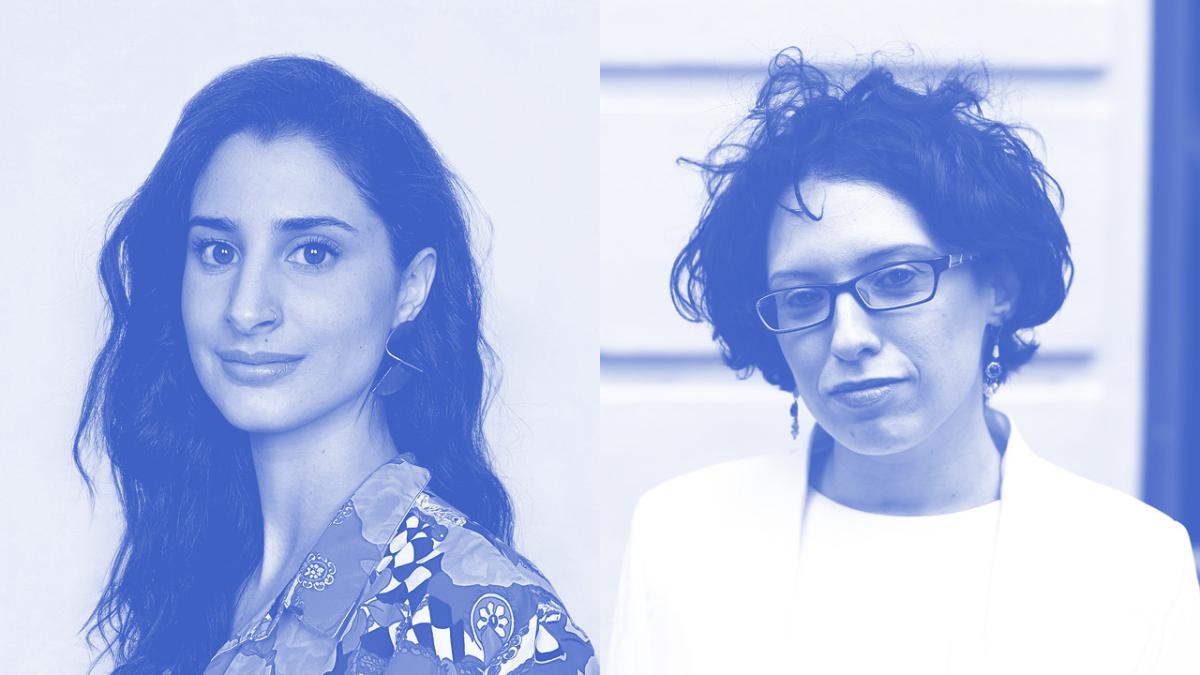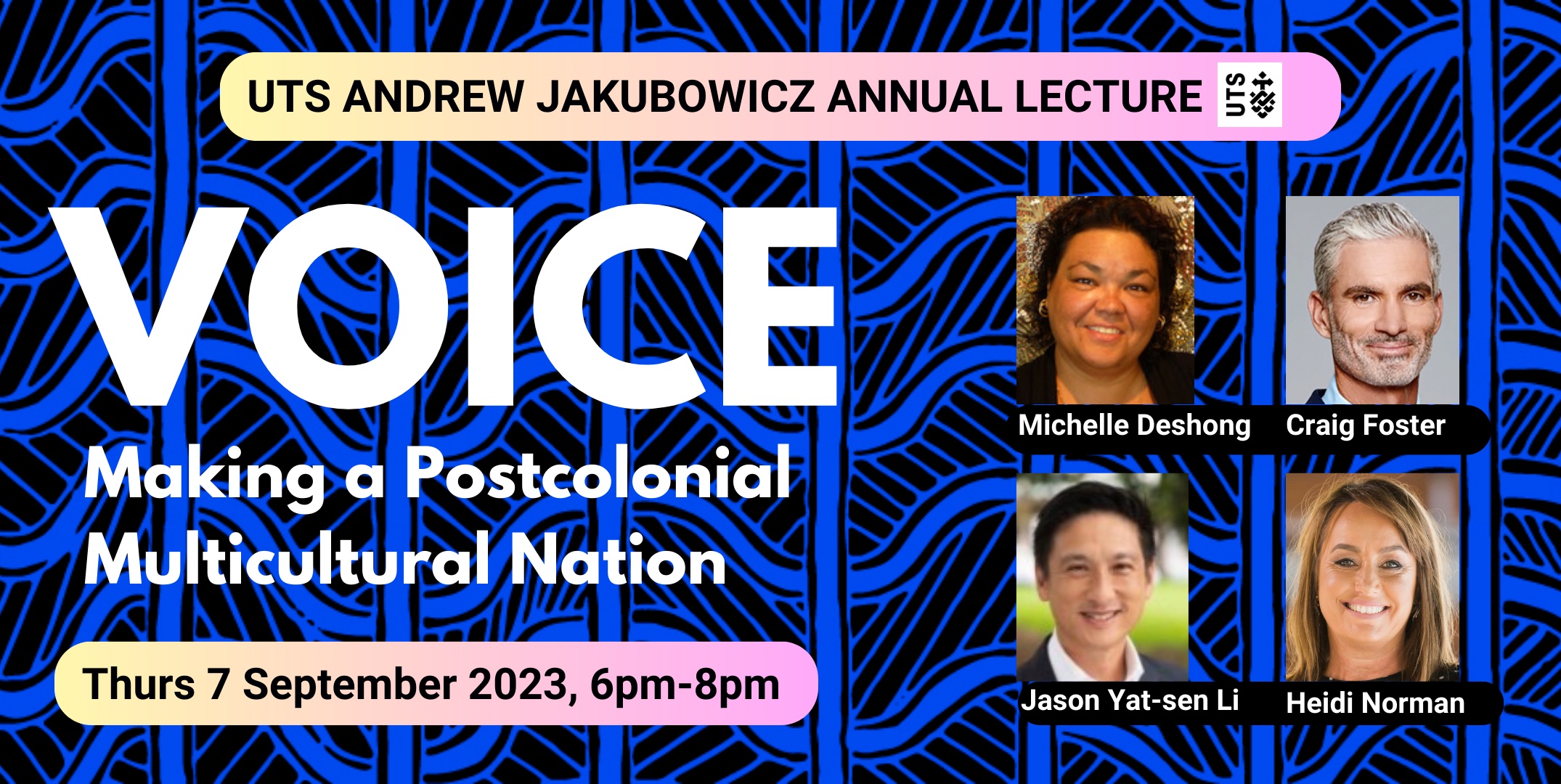Events
- Events
- Q&A
The Great Debate: Does sport unite or divide us?
National Library of Australia Parkes Pl W, CanberraThe Palestinian Catastrophe
The Great Hall, Quadrangle (A14), The University of Sydney, University Place.16th Annual Wheelwright Lecture, ‘Not Going Away: First People and the Australian Economy’
Lecture Theatre 200, Social Sciences Building (A02), The University of Sydney, Science RoadNavigating Two Worlds
Io Myers Studio, Esme Timbery Creative Practice Lab, UNSW Kensington UNSW Sydney, High St, Kensington, SydneyLobbying and Agenda Setting: Whose Interests are Served, How and Why?
Room 650, Social Sciences Building, University of Sydney Science Road, CamperdownVoice: Making a Postcolonial Multicultural Nation
UTS Green Theatre, Vicki Sara Building (Blg 7) UTS Building 7, level 2, room 025, 67 Thomas Street, Broadway- No events scheduled for 7 September 2023.
- No events scheduled for 8 September 2023.
- No events scheduled for 9 September 2023.
Week of Events
Transformative Justice and Peace in Africa
Transformative Justice and Peace in Africa
Join us for one or both of two online seminars exploring transformative justice and peace on the African continent. Session 1: Transformative Justice and the African Union: Unsettling the Dominant Discourse and Practice of Transitional Justice 4 September, 1-2 pm Online only Speaker: Dr Wendy Lambourne, Senior Lecturer in Peace and Conflict Studies, Discipline of Sociology and Criminology, University of Sydney Transitional justice as a field of practice has become standardised around four ‘essential and complementary’ key pillars derived from the Joinet principles against impunity: criminal justice, truth-seeking, reparations and guarantees of non-recurrence/institutional reform. These four key pillars were defined by the United Nations in 2010 as central to supporting transitional justice in countries seeking to build peace at the same time as addressing the legacies of mass human rights violations. I have argued that the imposition of these four pillars as the only model of transitional justice not only undermines the principles of local ownership and contextualisation, it is also incompatible with a process of transformative justice and the ultimate goals of peace and reconciliation. The African Union has subsequently developed a Transitional Justice Policy and Framework for the region that takes a broader, more flexible and localised perspective which is […]
Transformative Justice and Peace in Africa
Transformative Justice and Peace in Africa
Join us for one or both of two online seminars exploring transformative justice and peace on the African continent. Session 1: Transformative Justice and the African Union: Unsettling the Dominant Discourse and Practice of Transitional Justice 4 September, 1-2 pm Online only Speaker: Dr Wendy Lambourne, Senior Lecturer in Peace and Conflict Studies, Discipline of Sociology and Criminology, University of Sydney Transitional justice as a field of practice has become standardised around four ‘essential and complementary’ key pillars derived from the Joinet principles against impunity: criminal justice, truth-seeking, reparations and guarantees of non-recurrence/institutional reform. These four key pillars were defined by the United Nations in 2010 as central to supporting transitional justice in countries seeking to build peace at the same time as addressing the legacies of mass human rights violations. I have argued that the imposition of these four pillars as the only model of transitional justice not only undermines the principles of local ownership and contextualisation, it is also incompatible with a process of transformative justice and the ultimate goals of peace and reconciliation. The African Union has subsequently developed a Transitional Justice Policy and Framework for the region that takes a broader, more flexible and localised perspective which is […]
The Great Debate: Does sport unite or divide us?
The Great Debate: Does sport unite or divide us?
A Social Sciences Week special event Tuesday 5 September, 6.00 – 9.00pm AEST National Library of Australia Join us for a lively evening of discussion and debate at the National Library of Australia (NLA) in Canberra as we explore the power of sport to bring us together, or push us apart, alongside a matched exhibition at the NLA. Our esteemed speakers are Academy Fellows and published authors, The Hon Andrew Leigh MP and Emeritus Professor David Rowe who will take the stage to explore this fascinating theme alongside Seriously Social podcast host and journalist Ginger Gorman who will moderate the debate. The Great Sports Debate promises to be a thought-provoking and entertaining event, with opportunities for audience participation and engagement. Ticket includes access to the National Library of Australia's exhibition Grit & Gold: Tales from a Sporting Nation, drinks and canapes followed by the debate at 7pm, followed by Q&A. Proudly brought to you by the Academy of the Social Sciences in Australia and the National Library of Australia, with support from Synergy Group. We are delighted to announce that a portion of the proceeds from ticket sales to the Great Debate will be donated to the Indigenous Literacy Foundation charity in support of Indigenous […]
The Palestinian Catastrophe
The Palestinian Catastrophe
Presented by Conversation at the Crossroads in association with the School of Social and Political Sciences, University of Sydney. The Palestinian catastrophe, known as the Nakba, refers to the devastation of the Palestinian homeland in 1948, and with it the displacement of the majority of Palestinian Arabs. The Catastrophe did not end in 1948. 75 years later Palestinian lands remain under occupation. As the dramatic use of military force in recent weeks shows, violence, discrimination and displacement remain the lot of the Palestinians. What is a principled response? Which way for a just peace? What constructive initiatives can Australia and other governments take? What of the UN? Is civil society everywhere ready to assume its responsibilities? The peace of the region and the world beyond hangs in the balance. Keynote Address: The Hon Bob Carr, former Foreign Minister for Australia and NSW’s longest continuously serving premier, is Industry Professor (Business and Climate Change) at University of Technology Sydney (UTS). He previously headed the Australia-China Relations Institute at UTS as Director and Professor of International Relations. Professor Carr is Honorary Professor at Beijing Foreign Studies University; recipient of the RSIS Distinguished Visiting Fellowship from Singapore’s Nanyang Technological University and the Fulbright Distinguished […]
16th Annual Wheelwright Lecture, ‘Not Going Away: First People and the Australian Economy’
16th Annual Wheelwright Lecture, ‘Not Going Away: First People and the Australian Economy’
The 16th Annual E.L. ‘Ted’ Wheelwright Memorial Lecture The annual E.L. ‘Ted’ Wheelwright Memorial Lecture is held to commemorate the pioneering role that Ted Wheelwright played in developing studies in Political Economy in Australia. Not Going Away: First People and the Australian Economy Speaker: Professor Heidi Norman Over the last 50 years there has commenced a land titling revolution. Indigenous peoples have recognised land interests over more than half the continent, nearly four million square kilometres, with more under claim. Estimates suggests that Indigenous peoples hold exclusive possession native title and fee simple to around 26% of Australia’s landmass. When non-exclusive native title is included, that number rises to 54% of the country covering National parks, conservation areas, and vast expanses of the continent. The Aboriginal land estate is critical in the response to climate change and the energy transition currently underway will transform land-use patterns across many parts of regional Australia. While the risk of exclusion for Indigenous peoples is significant, opportunities that will come with meaningful participation are enormous. My research shows that Indigenous land holders want to address climate change in ways that support their ambitions to generate prosperity and rebuild nations and economies that align with Indigenous values. […]
Navigating Two Worlds
Navigating Two Worlds
Lamisse Hamouda | Lana Tatour In 2018 Egyptian-Australian writer Lamisse Hamouda had moved to Egypt to study when her life was turned upside down. Her father Hazem, on his way to visit her, was arrested by authorities, accused of sympathising with a terrorist organisation, and sent to prison without charge or evidence for 433 days. In an intimate evening of conversation with UNSW Middle East expert Lana Tatour, delve into Lamisse's new book The Shape of Dust, and her experience fighting against the Egyptian prison system as an Australian citizen. Together they’ll unpack what support the Australian Government provides dual citizens abroad (surprisingly minimal), what cultural identity means for individuals stuck between two cultural worlds, and how trauma can fragment memory and bring unexpected challenges to the writing process. This event is presented by the UNSW Centre for Ideas.
Lobbying and Agenda Setting: Whose Interests are Served, How and Why?
Lobbying and Agenda Setting: Whose Interests are Served, How and Why?
Lobbying and advising the government are part of the democratic process. Sometimes the interests being served are clear, yet at others they are hidden. Sometimes stories are told to make the outcomes desired easier to understand, and more likely, while at others the narrative serves to shroud the real outcomes desired and undermine democratic processes. In this presentation, the cases of consultants advising governments and the OECD on tax avoidance and LGBTQ+ lobbying are used to tease out some of these tensions. In the case of the former, the role of the Big Four (PwC, EY, KPMG and Deloitte) is used to illustrate how interests potentially undermine desirable outcomes. In the case of the latter, lobbyists and lobbying were essential in driving desirable change. Moderator: Professor Gaby Ramia Speakers: Associate Professor John Mikler: John is an Associate Professor in the Discipline of Government and International Relations. He researches corporations' relations with states, civil society and international organisations, as well as how they are political actors in their own right. His recent books include The Political Power of Global Corporations (Polity 2018); MNCs in Global Politics: Pathways of Influence (co-edited with Karsten Ronit, Edward Elgar 2020); and Capitalism for All: Realising its Liberal […]
Voice: Making a Postcolonial Multicultural Nation
Voice: Making a Postcolonial Multicultural Nation
What might a postcolonial nation look like in Australia, and what is the place of the Voice Referendum in that process? What is the role of multicultural communities in the Referendum? What is at stake for multicultural communities in building a postcolonial future free of racism? Just over half of Australians were born overseas or have one migrant parent, and nearly a quarter speak a language other than English at home. Multicultural communities will be crucial to the Referendum. This event takes up the question of both diverse communities and support for the Voice Referendum, as well as the longer-term efforts around treaty and reconciliation. Light snacks from 6pm, for a 6.30pm start. This is the 2023 UTS Andrew Jakubowicz Annual Lecture SPEAKERS Professor Heidi Norman Associate Dean Indigenous, Faculty of Arts and Social Sciences, University of Technology Sydney. Heidi is a scholar of Aboriginal politics and history, and Gomeroi descendant. Michelle Deshong Managing Director, Deshong Consulting. Michelle has worked in fields of gender equity, leadership, governance and political science. She is Co-Chair of Supply Nation and member of the AIATSIS Council. Michelle draws connection to the Kuku Yulanji Nation. Craig Foster AM Member of the Australian Multicultural Council and […]

